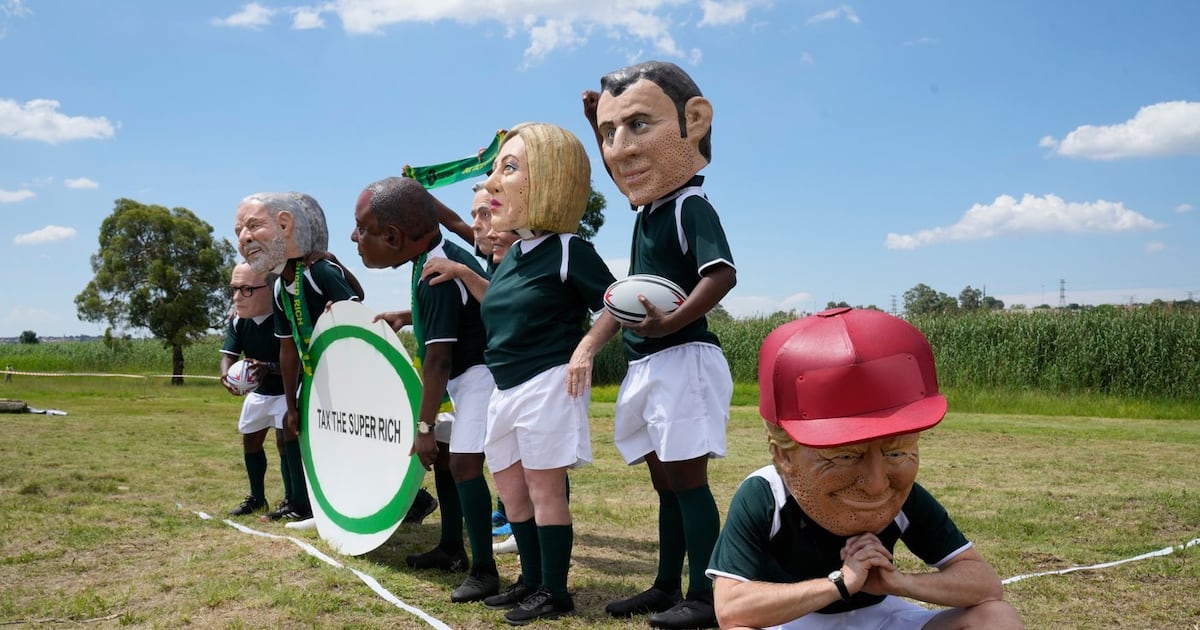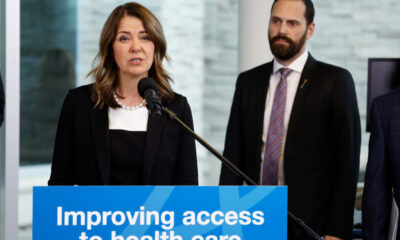Politics
G20 Summit in South Africa Ends with U.S. Diplomatic Standoff

The G20 summit in Johannesburg, South Africa, concluded on March 17, 2024, amid a significant diplomatic standoff involving the United States. Tensions escalated when the host nation refused to transfer the rotating presidency to a U.S. official deemed too junior. This standoff was further inflamed by the U.S. boycott of the summit, linked to allegations from the Trump administration that South Africa was persecuting its Afrikaner white minority.
The U.S. is set to assume the G20 presidency in 2026, with plans to host the summit at President Donald Trump’s golf club in Doral, Florida. However, South African officials indicated that a traditional handover ceremony would likely not occur due to the U.S. decision to send a lower-level diplomatic representative. South African Foreign Minister Ronald Lamola emphasized the need for appropriate representation, stating, “The right level is the head of state, a special envoy appointed by the president of that country, or it could also be a minister.”
A Deepening Rift
As the summit progressed, uncertainty loomed over whether any U.S. representatives would attend the closing discussions. The diplomatic divide widened earlier in the week when President Ramaphosa claimed that the U.S. sought to participate at the last minute. The White House refuted this, asserting that U.S. officials would only attend the formal handover ceremony. White House Press Secretary Karoline Leavitt remarked that Ramaphosa was “running his mouth a little bit against the United States and the president of the United States.”
In a departure from past practices, South Africa issued a leaders’ declaration on the summit’s opening day, March 16, 2024, instead of at the conclusion. This declaration, which came despite U.S. opposition, focused on pressing global issues such as climate change and wealth inequality. Argentina also voiced dissent against the declaration, particularly after Argentinian President Javier Milei, an ally of Trump, chose not to attend.
Despite U.S. criticisms, several G20 nations, including China, Russia, France, Germany, the United Kingdom, Japan, and Canada, supported the declaration. It called for greater global attention to issues affecting poorer countries, including financial aid for recovery from climate-related disasters and assistance with debt relief and green energy transitions.
The G20’s Challenges
South Africa touted the declaration as a success for international collaboration, especially in light of the “America First” foreign policy championed by the previous U.S. administration. However, the non-binding nature of G20 declarations raises questions about their long-term effectiveness. Notably, some proposals, such as the establishment of a new international panel on wealth inequality akin to the United Nations’ Intergovernmental Panel on Climate Change, were absent from the final document.
Critics have expressed concerns about the G20’s capacity to address significant global crises, including the ongoing Russia-Ukraine conflict and escalating tensions in the Middle East. The 122-point G20 declaration made only a single reference to Ukraine, which called for an end to global conflicts, signaling a limited impact on the nearly four-year war.
French President Emmanuel Macron acknowledged the historical significance of the summit, stating that it marked the first G20 meeting on the African continent. Yet he noted, “the bloc is struggling to have a common standard on geopolitical crises.”
Despite these challenges, some activists hailed the Johannesburg summit as a pivotal moment for the G20, particularly in prioritizing issues affecting poorer nations. Max Lawson of Oxfam remarked, “This is the first ever meeting of world leaders in history where the inequality emergency was put at the centre of the agenda.” Namibia’s President Netumbo Nandi-Ndaitwah highlighted the importance of addressing development priorities from an African perspective, reinforcing the summit’s focus on global inequality.
As the G20 summit concluded, the unfolding diplomatic tensions between the U.S. and South Africa underscored the complexities facing international cooperation.
-

 Politics3 weeks ago
Politics3 weeks agoSecwepemc First Nation Seeks Aboriginal Title Over Kamloops Area
-

 World4 months ago
World4 months agoScientists Unearth Ancient Antarctic Ice to Unlock Climate Secrets
-

 Entertainment5 months ago
Entertainment5 months agoTrump and McCormick to Announce $70 Billion Energy Investments
-

 Lifestyle4 months ago
Lifestyle4 months agoTransLink Launches Food Truck Program to Boost Revenue in Vancouver
-

 Science5 months ago
Science5 months agoFour Astronauts Return to Earth After International Space Station Mission
-

 Technology3 months ago
Technology3 months agoApple Notes Enhances Functionality with Markdown Support in macOS 26
-

 Top Stories2 months ago
Top Stories2 months agoUrgent Update: Fatal Crash on Highway 99 Claims Life of Pitt Meadows Man
-

 Lifestyle3 months ago
Lifestyle3 months agoManitoba’s Burger Champion Shines Again Amid Dining Innovations
-

 Politics4 months ago
Politics4 months agoUkrainian Tennis Star Elina Svitolina Faces Death Threats Online
-

 Sports5 months ago
Sports5 months agoSearch Underway for Missing Hunter Amid Hokkaido Bear Emergency
-

 Politics4 months ago
Politics4 months agoCarney Engages First Nations Leaders at Development Law Summit
-

 Technology5 months ago
Technology5 months agoFrosthaven Launches Early Access on July 31, 2025





















